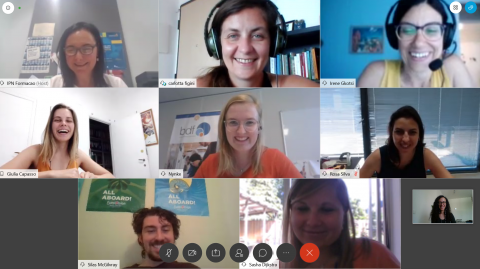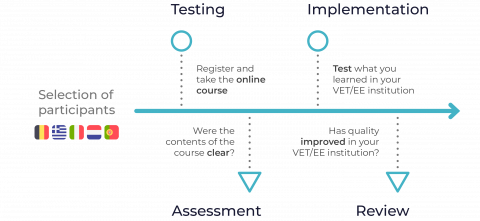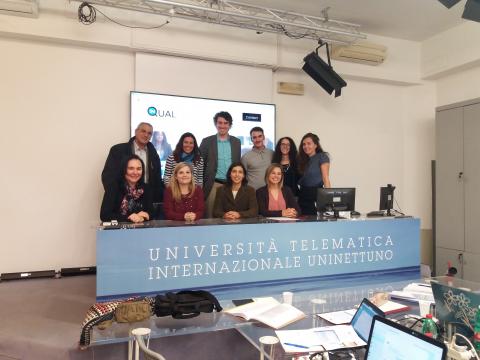3.2 - Enhance Transnational Mobility of trainers and learners
Abstract
Transnational cooperation through participation in conferences, study visits, joint projects or mobility of teachers and students provides opportunities for learning and thus for improving quality. The activities conducted may reinforce one another and create synergy: a study visit might turn into sustained cooperation and joint projects, participation at a conference may lead to common visits and exchange of students, teachers and trainers. Transnational cooperation provides staff and students with additional opportunities to develop language skills and intercultural competences.
Why is this important for you as a QM?
- To improve the overall quality of the teaching
- To motivate students and engage them
- To develop transnational corporations with other VET Providers
- To promote internationalization among students and staff members
- To support the responsible staff members in the correct implementations of their tasks
How should I implement the action?
- oversee the process of organizing transnational mobility projects by using the instruments already discussed: setting goals, creating learning outcomes, establishing a schedule, and implementing a valid method of assessment.
- oversee the process of searching for funds to organise the mobility
- access the various number of opportunities given by the European programmes that target schools and educational institutions. The most suitable is Erasmus+, the EU programme for Education, Training, Youth and Sport for 2014-2020, which provides funding to support professional development activities abroad for school staff, including courses, teaching assignments or job shadowing.
- address the transnational organizations involved in these mobility projects in a similar way to all the other external stakeholders of the project
- apply the most suitable engagement and communication strategies to be able to actively and effectively cooperate with them
How should I know if I have made an impact thus increasing the quality of the VET provision and to which extent? (Indicators also linked with the EQAVET if any):
- The number of Transnational Mobility Projects activated by the organization
- The number of teachers and learners involved in them (as measured also by the EQAVET Indicator n.2)
- The level of satisfaction of both the teachers and the learners
- The participation rate for the programme is increased thanks to the participations of trainers and learners in mobility programmes (as measured by the EQAVET Indicator n.3)
- The completion rate for the programme is increased thanks to the participations of trainers and learners in mobility programmes (as measured by the EQAVET Indicator n.4)
- The placement rate for the programme is increased thanks to the participations of trainers and learners in mobility programmes (as measured by the EQAVET Indicator n.5)
Links & further readings (includes also third-party resources- videos, etc.):
- Erasmus+: Staff Mobility https://youtu.be/ZGVO6SFDm0g
- Erasmus+ Learning Mobility for Individuals:
- https://ec.europa.eu/programmes/erasmus-plus/opportunities/learning-mobility-individuals_en
- https://ec.europa.eu/social/main.jsp?catId=1198&langId=en



